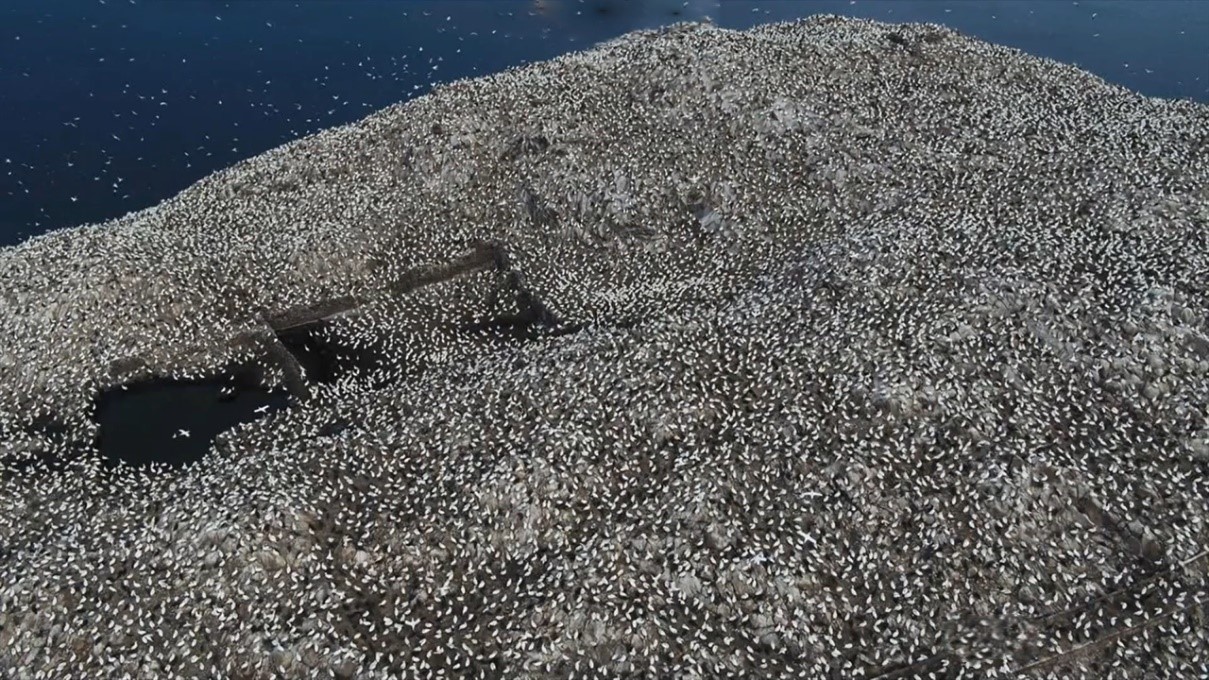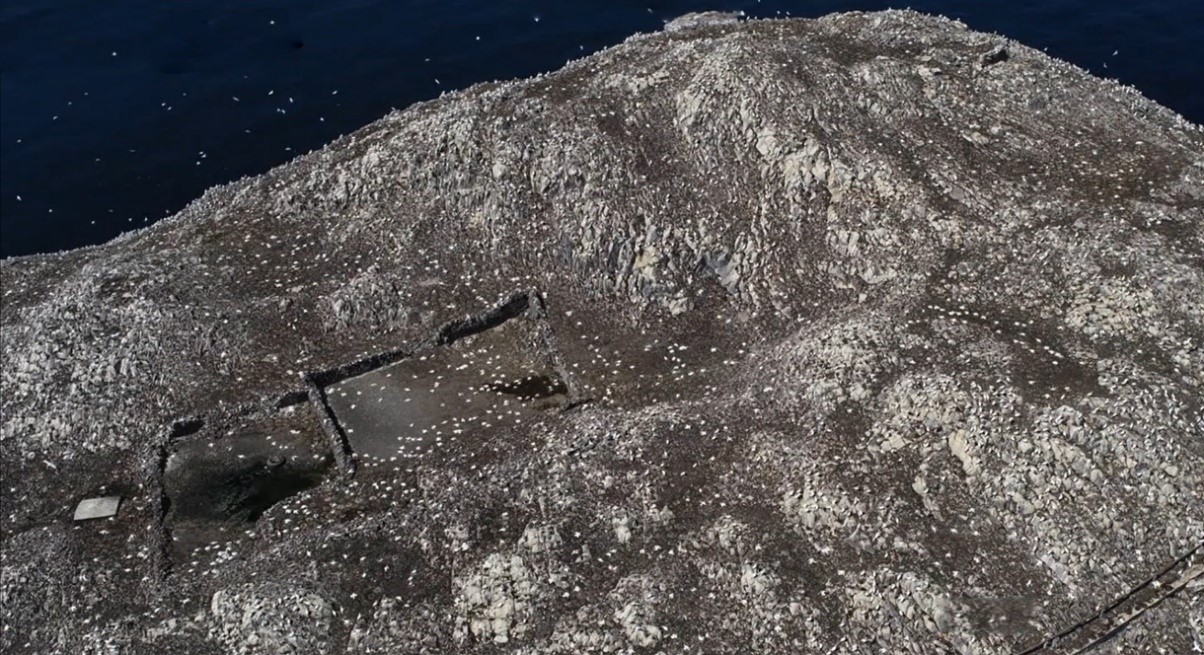Birds, Bass Rock and the BBC
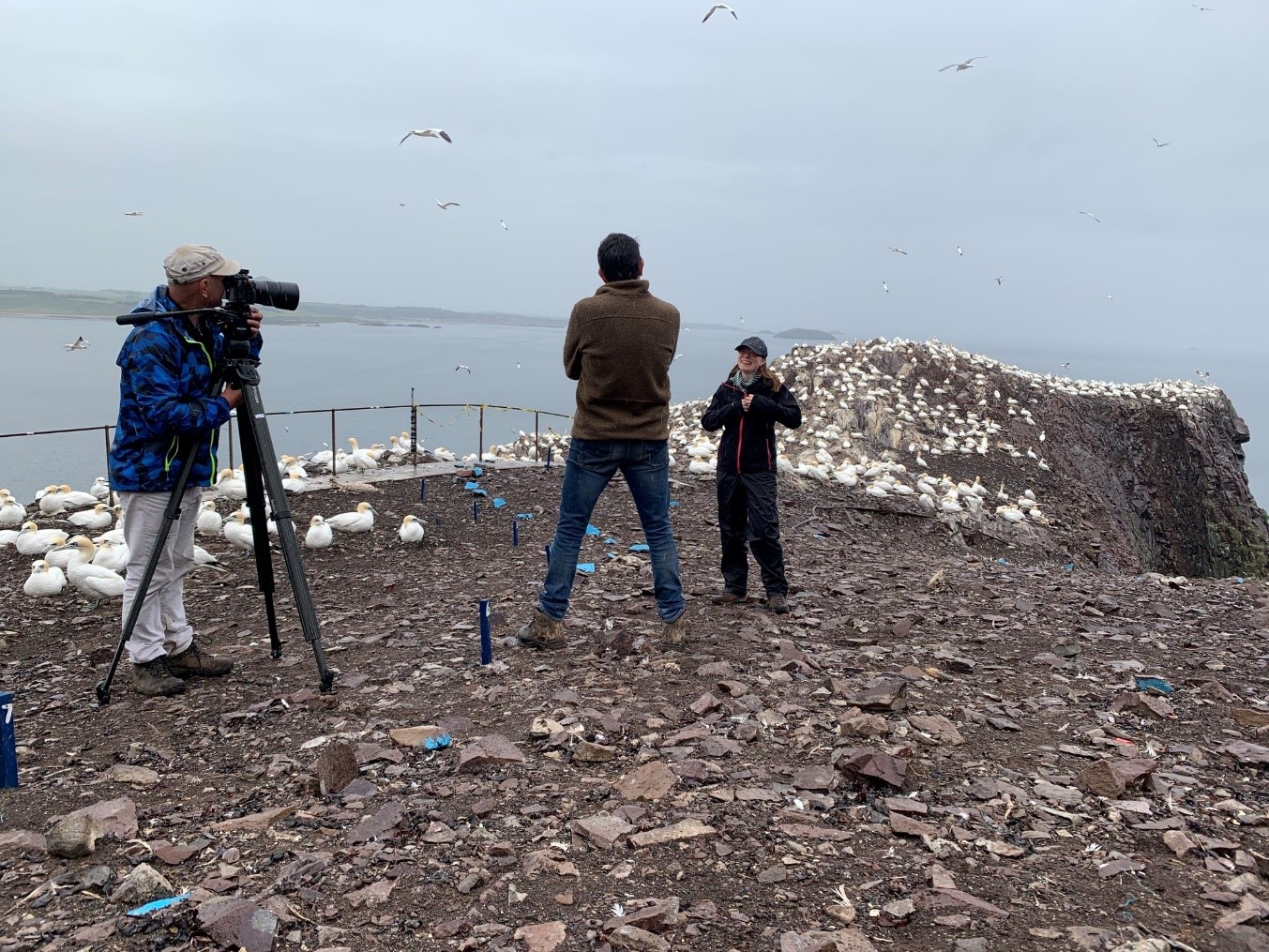
By Amy Tyndall
I’ve been studying part-time over the past two years alongside my ‘real job’ for an MSc in Earth Observation and Geoinformation Management, with a view to changing career. After graduating with a PhD in Astrophysics in 2014, I went straight into working in science communication and public engagement. It’s a job I’ve loved doing for the past 10 years, but now I am keen to get back to being the one doing the cool science rather than just writing about it! In particular, I’m wanting to help save the planet and its inhabitants in a more hands-on way.
Animals were always my first love, so a job in wildlife conservation is what I’m aiming for after graduation. As such, a dissertation topic came up that I couldn’t resist – using a UAV (unmanned aerial vehicle, more commonly known as a drone) to carry out a survey of a famous northern gannet colony found off our local coastline, in the wake of an outbreak of bird flu. I know absolutely nothing about birds, but there’s no time like the present to learn!
Scotland is home to 58% of the global population of northern gannets, Morus bassanus, with the largest individual colony in the world found on our very own Bass Rock in East Lothian. At its peak, over 150,000 gannets can be found there, making it glow its distinctive white colour which can be seen from miles away. Sadly, a very infectious strain of avian influenza was detected in mid-June 2022 and had a devastating effect on the colony.
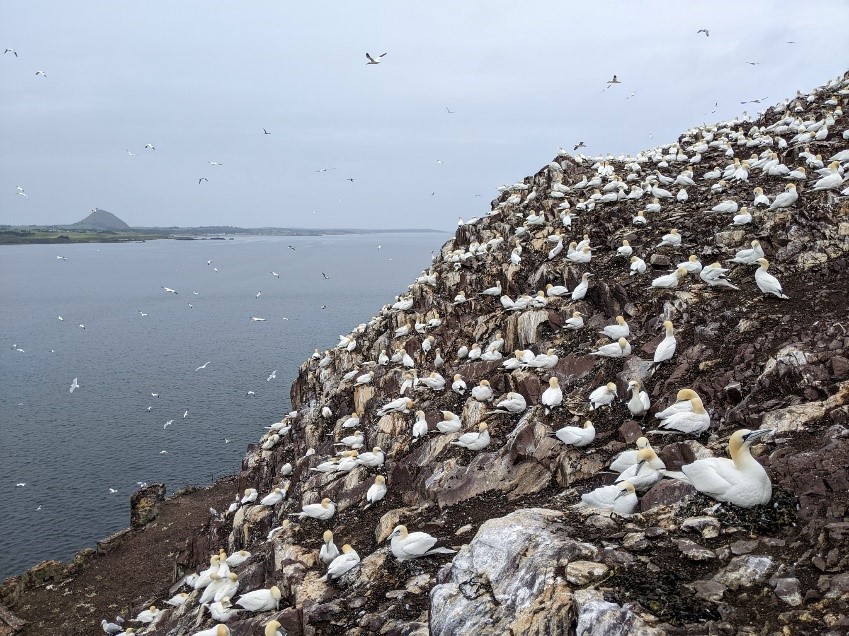
Bass Rock off the coast of East Lothian is home to thousands of gannets. Looking back to shore, the conical hill Berwick Law is visible on the horizon.
After bird flu hit Bass Rock, the Scottish Seabird Centre in North Berwick did a call-out for organisations who could assist with survey work. It was Dr Caroline Nichol and Tom Wade from the School of GeoSciences who stood up to the plate, UAV in hand. Some shocking aerial images were acquired that summer showing just how devastating the disease had been. Keen to continue fostering their new relationship, Caroline, Tom and the team at the Scottish Seabird Centre figured that a proper analysis of the data could be well-suited to a Master’s project. So, my job in all this? To determine how many survived the outbreak in June 2022 and subsequently see how the colony was recovering in June 2023. Only one thing for it – time to go fly the UAV over Bass Rock!
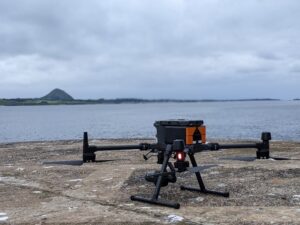
The DJI Matrice 300 RTK drone used to get our data.
We were asked if we were ok with a couple of others hitching a ride with us across the Firth to Bass Rock. Our fellow sailors turned out to be a crew from BBC News who were keen to get an update on the colony after it had featured pre-outbreak in David Attenborough’s ‘Wild Isles’ TV series, and post-outbreak on the BBC’s Autumn Watch and Spring Watch programmes (I did say it was a famous gannet colony!). It was none other than journalist, news reporter and television presenter, Justin Rowlatt, Climate Editor for BBC News, who joined us for the day, along with his cameraman.
After a 20-minute fun ride on a rib boat, the Bass Rock looms above us and we’re hit by a sensory deluge of sights sounds… and smells… of thousands of seabirds. Not just gannets, but also kittiwakes, razorbills, puffins and herring gulls. We offloaded the gear, and the BBC team go about setting up video shots of the gannets. The weather forecast was a little sketchy, and since electronics and water are not known to be a great combination, we were a little nervous about getting a window in which to be able to fly the drone over the island.
Thankfully, we got the 15 minutes we needed before the drizzle started. Then it was interview time! First, they spoke to Maggie Shedden, the extremely knowledgeable Landing Guide for the Scottish Seabird Centre, who gave them an overview of the gannets and the effect bird flu has had. Then it was my turn, where I described how I’m applying machine learning techniques to build a model that can automatically detect and count live, dead and flying gannets in the UAV imagery. With this, we hope to reduce the time taken to carry out population surveys from hours/days to a matter of minutes. “Make sure you mention the words ‘Artificial Intelligence!’, said Justin, “The public like that!”.
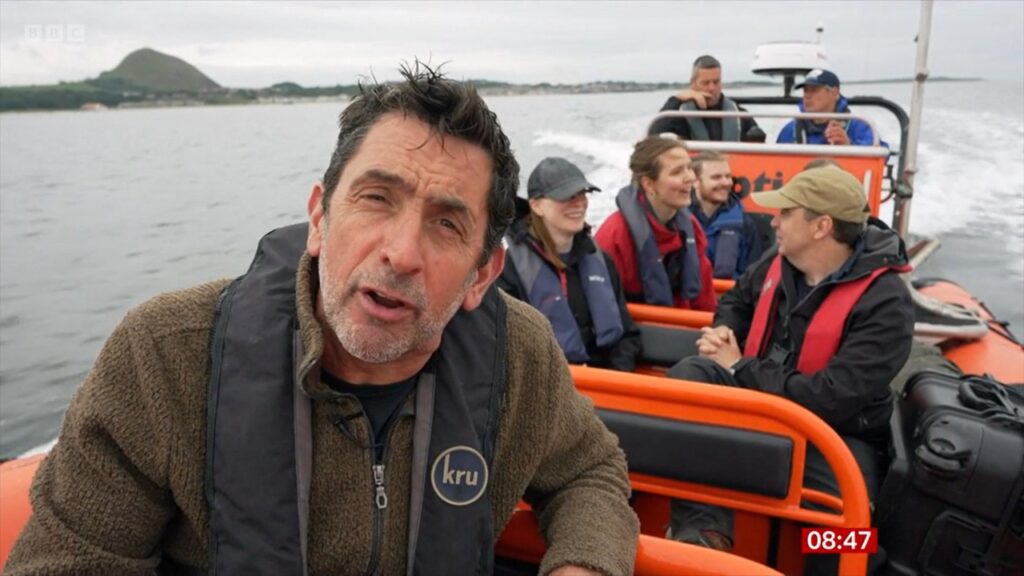
Justin Rowlatt talking to camera. I’m directly behind him, Tom Wade is next to me. Credit: BBC News
The 4-minute segment was broadcast on BBC Breakfast, BBC News at One, BBC News at Six along with some clips on the radio. BBC News also posted an article on their website.
It was a wonderful experience. After looking at slightly fuzzy aerial pictures of the gannets for months, it was amazing to finally experience these beautiful birds up close and get more of an insight into their behaviour in real life. The results of my work have shown that the population has shown some recovery after the 2022 outbreak, which is great news. It is hoped that the technique we developed will continue to help the Scottish Seabird Centre with their conservation work going forward, and its possible it could be adapted for other wildlife species. Fingers crossed this marks the end of the first step in achieving my new careers goals.
- The gannet colony imaged on Bass Rock in 2020 before bird flu struck.
- The gannet colony in 2022. The devastating impact of bird flu is clear.
(BBC News)
(University of Edinburgh/Scottish Seabird Centre)
(University of Edinburgh/Scottish Seabird Centre)


